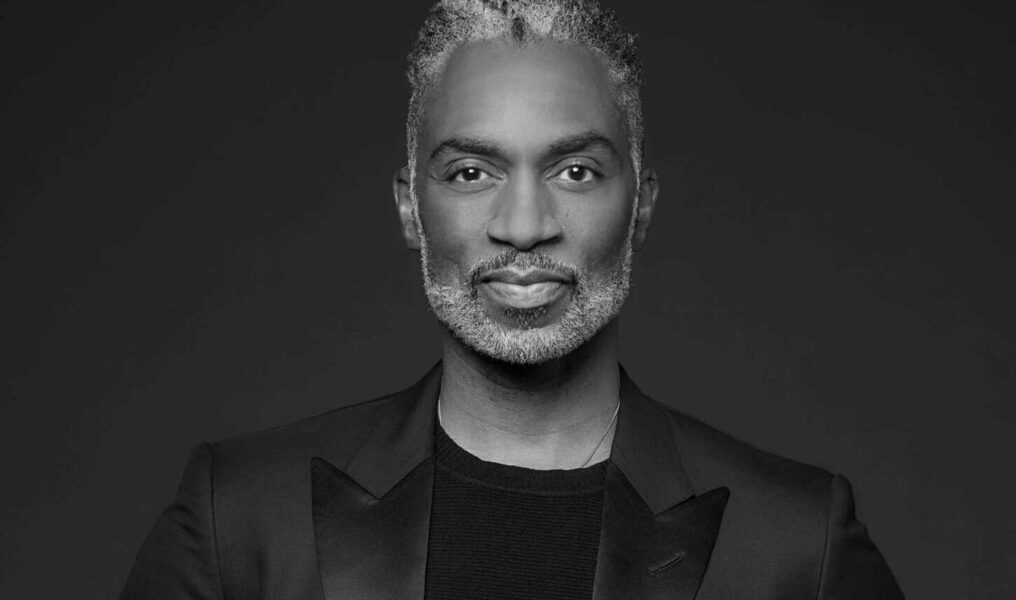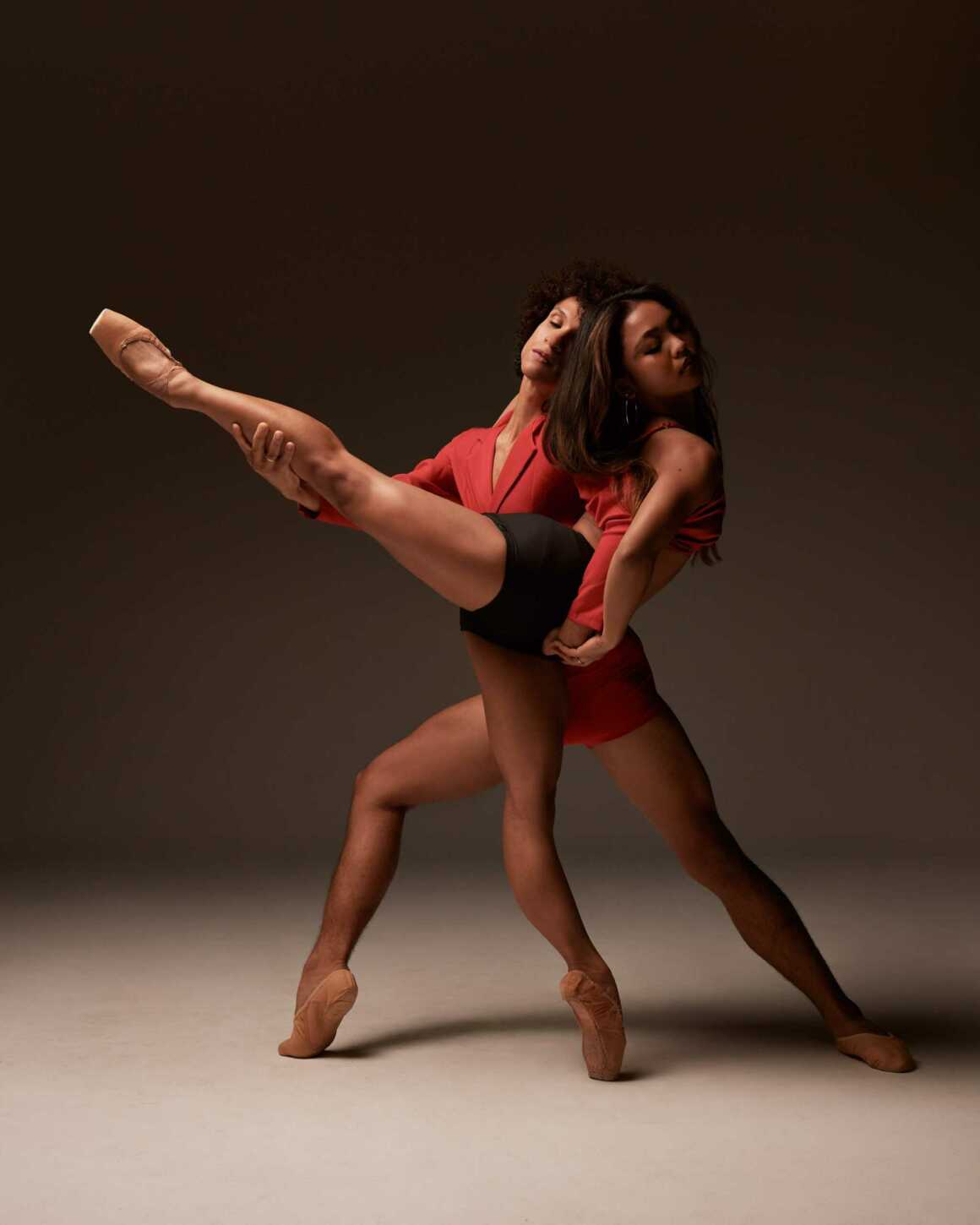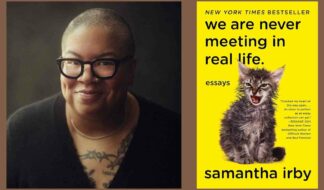Desmond Richardson, the First Black Male Principal Dancer in the American Ballet Theatre, Speaks Boldly Through Dance
The former Ailey dancer on what the legendary choreographer taught him

As the first Black male principal dancer in the American Ballet Theatre, Desmond Richardson has been making waves in the dance world for decades. His own award-winning ballet company, Complexions Contemporary Ballet, which he co-founded with choreographer Dwight Rhoden in 1994, dances into Music Hall in Detroit on April 23 and into The Whiting Auditorium in Flint just a few days later, on April 28.
For over 30 years, Complexions, which has toured in over 20 countries across five continents, has been driven by what it calls “a singular approach to reinventing dance through a groundbreaking mix of methods, styles and cultures.”
As for Richardson, who is openly gay, he’s come a long way. In a 1991 “Up and Coming” profile in The New York Times that was written while he was a leading dancer with the Alvin Ailey American Dance Theater, he described himself as a “chubby” high schooler who never had a dance class. “Nobody is laughing now,” the article continued. “Over the past two seasons, Mr. Richardson has been singled out by critics and audiences for his dazzling technique and charismatic presence.”
Recently, Richardson, now 54, spoke to Pride Source about what Ailey taught him, incorporating social commentary into dance and how current attacks on the trans community may impact his work.
Legend has it you discovered your love of dance at a block party when you were 10?
Actually, I discovered dance through watching [the PBS series] Great Performances and master dancers such as Rudolf Nureyev and Margot Fonteyn. I had a lightbulb moment. I knew that was something I wanted to do.
What were your first steps, so to speak, to starting your dancing career?
I spoke to my guidance counselor about it. She suggested I attend the High School of the Performing Arts [in Manhattan]. The movie “Fame” had just come out. I thought the school was a fictitious place.
And what did you find when you started at the very real high school that so many greats had studied at?
I didn’t have much training. But I had passion and flexibility, for sure. I didn’t know I had flexibility until they told me. They accepted me into the school, and I started my journey through classical, ballet, jazz, waltz, tap, singing, acting — all of those things that were really afforded to us at the school.
Before graduating at the age of 17, you were already taking classes at the Alvin Ailey school as well. You went on to make the second company and, after a short while, the first. Did you have much interaction with Ailey himself?
I had a lot of audiences with Alvin. He was really checking in on the new talent that was coming in from the school. I would sneak over and watch him teach and he’d invite me in. He told me, “Young man, we have plans for you.”

Your trajectory with the company was rapid. From 1987 to 1994, you were the principal dancer. Then, you and fellow dancer and choreographer Dwight Rhoden decided to start Complexions. What did you learn from Ailey that helped you to start your own company?
What I took from being with Alvin Ailey was the point of being real, being in the moment and being honest. That’s something that Alvin talked about readily. Your authenticity. What is that? You want to show your passion, but you don’t want to impose yourself on people’s choreography. You want to be bold. You need to be so invested that the audience has no other opportunity but to look at you. They’re engaged with you. Myself and Dwight, we really learned that there.
Any key lessons that Ailey taught you?
Alvin, he spoke in a lot of imagery. He always said, “What do you want to say? I have these steps, but if you don’t breathe life into them, no one will understand, and you won’t understand. I need to see your heart, your humanity and soul.”
Talk to me about the beginnings of your baby, Complexions.
We started in 1994 on the auspices of having a diverse group, not only ethnically but with music and the bridging of different genres of dance and wanting to really have a voice. Dwight understood that he really wanted to say something different. But we used what we knew and used that expertise.
A recent piece, from 2019, was the timely Woke. Tell me about it.
This was just as George Floyd’s death and the Black Lives Matter movement was happening. Dwight wanted to comment about that, gun violence and sexual assault, and the LGBTQ+ community. Why are we having an issue when we’re all just human here? It’s about loving each other.
And what does Woke mean to you, specifically?
Woke is being able to understand people. To understand differences and to be generous in spirit and say, “Listen, I understand you. I’m available and awake to understand who you are; that I can be respectful to you and your plight.”

With the queer community and, especially, the trans community, coming under attack across the country, will that find its way into your work as well?
We’re going to let that come to us as it comes to us. We’re about to work on a new work and I’m sure that’s about to come into play. We’ve been doing that and having it in our repertory since day one. For our first concerts, we had two men in drag. We have non-binary dancers in the company. When the audience sees that authenticity, they know it’s not a novelty act.
Is it challenging to blend social commentary and dance?
The way we do it is to really speak through movement. It doesn’t need to be so literal, but we definitely put it out there and give you the playing field to say, I’m witnessing it. If you see two men on the stage, you witness it. If they’re kissing or whatever, it’s not to be in your face. It’s about, let’s talk about this. This is the human experience.
Complexions turns 29 this year. Meanwhile, you’re 54. How do you feel?
I’m more mature now. It’s really quite interesting. Even before the pandemic, I was starting to transition off the stage due to my feet. I have bursitis in both feet. I was already trying to understand where I am going, what I am doing, where else I want to go and what do I want to say.
And what do you want to say?
The body does what it does. My body is changing, and I can no longer do those things that I could in my 20s. But there are other things to do. I can engage in music quite differently and still speak quite boldly.
Complexions Contemporary Ballet Company will perform at the Music Hall in Detroit at 8 p.m. Sunday, April 23 and at The Whiting Auditorium in Flint at 8 p.m. Friday, April 28. For more information, visit ticketmaster.com.










